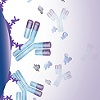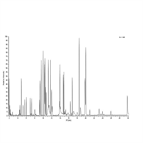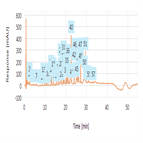Find methods for your needs
Refine by Feature
Displaying 1-3 of 3 results for Tag: Peptide mapping
High-precision, automated peptide mapping of proteins
Instrument Type: UHPLCThe biopharmaceutical industry continues to develop protein-based biotherapeutics in increasing numbers. Due to their complexity and biotechnological production, there are many attributes that need to be analyzed to guarantee their safety and efficacy. Peptide mapping is used to measure several critical quality attributes (CQA) required for the characterization of any biotherapeutic protein. The analysis is used to confirm that the correct sequence has been expressed for the protein and to check for post-translational and chemical modifications.
Rapid sample preparation and peptide mapping analysis of top-selling monoclonal antibody therapeutics
Instrument Type: LCMSMSThe Thermo Scientific SMART Digest Kit is applied for generation of peptides from therapeutic monoclonal antibodies in 60 minutes. Peptide mapping samples were analysed on a Thermo Scientific UltiMate U3000 RSLC system coupled to a Thermo Scientific Q Exactive HF with Biopharma Option. Separation of sample peptides was performed on a Thermo Scientific Acclaim RSLC 120, C18, 2.2 µm analytical column using a 30 minute separation gradient, yielding excellent chromatographic separation and high sequence coverage.
Fast and Reproducible peptide mapping of an Antibody Drug Conjugate (Kadcyla) by using a SMART digest Kit
Instrument Type: HPLC (Biocompatible)The Thermo Scientific Dionex Ultimate 3000 Bio-LC system is applied for the peptide mapping analysis of an Antibody Drug Conjugate (Kadcyla). The separation was performed on a Thermo Scientific Acclaim RSLC 120-C18 column by using a Thermo Scientific SMART digest kit at UV detection of 214 nm. With a run time of 55 minutes the method allows separation of all peptides of Kadcyla (Antibody Drug Conjugate). The SMART Digest kit provides significant improvements in reproducibility, which results in fewer sample failures, higher throughput and the ability to more easily interrogate data.



